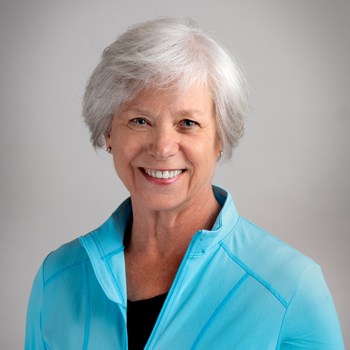
Diane graduated with distinction from the University of British Columbia with a Bachelor degree in the Science of Rehabilitation in 1976. She has been a member of the Canadian Physiotherapy Association since 1976 and a fellow of the Canadian Academy of Manipulative Therapy since 1981 (FCAMT). She completed certification in Intramuscular Stimulation (IMS) in 2001, Yoga teacher training in 2012, pelvic floor certification in 2013 and was recognized by the Canadian Physiotherapy Association as a clinical specialist in Woman’s Health in 2016.
She was an instructor and a chief examiner for the Orthopaedic Division of CPA’s fellowship examinations (CAMT) for over 20 years and has extensive experience in curriculum development both for the CAMT program and her own series of courses. In June 2023, Diane was award the CPA Professional Contribution Award for her work.
She is well published (books, chapters and journal articles) and the innovator of two pelvic support belts for which she holds the patent; The Com-Pressor and the Baby Belly Pelvic Support (www.babybellypelvicsupport.com).
Diane owns, directs and is a practicing physiotherapist at Diane Lee & Associates http://www.dianeleephysio.com. She has continued to maintain an on-going clinical practice for over 40 years and while she follows the research evidence closely, she draws from this deep clinical experience for her teaching and lecturing in the clinic, in Canada and internationally.
Diane has had the honour of collaborating with local, national and worldwide authorities to further her own education and integrates this knowledge into courses/models she teaches. Her combined clinical and education experience culminated in the co-development of The Integrated Systems Model for Disability & Pain (ISM), (Lee Diane & Lee Linda-Joy 2007 – 2013) the model she continues to teach and now solely evolve under the abbreviated title – the Integrated Systems Model – alongside her senior assistants from Diane Lee & Associates.
Learning how and when to use various assessment and treatment approaches is a key component of the Integrated Systems Model. The ISM Series course welcomes contributions from leaders such as Dr. Hollis Herman, Mark Finch and Dr. Gail Wetzler. Collectively, we come to learn with each other and from each other, that’s what good teachers do.
